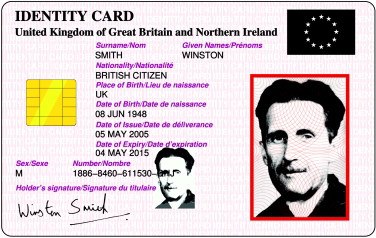The Business of Government Goes On

A case for Incapacity Benefit
Reaction to Conservative proposals on benefit reform has though been much more traditional fare where it has been scarcely worth the wear and tear on the contact lenses to read the reaction from the Government, Lib Dems and various interest groups, so predictable has it been.
As the The Guardian succinctly summarises the policy:
Controversial proposals to remove benefits for three years from people who refuse their third offer of a job are to be announced by the Conservatives tomorrow.
Source: The Guardian
I don't really think any sane person would believe that having 2.6 million on incapacity benefits at a time when, we are told we need vast swathes of immigration to fill jobs is remotely a tenable position, but this is a benefits issue, an area rarely illuminated in the glare of common sense.
It would appear that in some cases 'conservative_benefit_change_response.doc' has simply been attached to the appropriate distribution list and e-mailed without even reading the proposal, as seems to be the case with mental health charity Mind:
A spokeswoman for Mind, the mental health charity, said: "David Cameron needs to bear in mind the 40% of IB claimants who have mental health problems.
"Continuing stigma and discrimination also means many employers will not hire people with mental health problems."
Source: The Guardian
To help out what appears to be a very overworked Mind spokeswoman, I shall underline the key phrase: "refuse their third offer of a job". Listen, think, speak...it really does help.
Even the access to a large support staff is no guarantee of successful critique though, as Peter Hain demonstrates admirably in the same article:
"Their plans to interview 2.6 million people would also be prohibitively expensive."
Source: The Guardian
OK, so interviewing 2.6 million, even in the unlikely event that there isn't some simple pre-filtering that can be done on this number, with the real likelihood of making some compensating cost savings is prohibitively expensive, where as interviewing the entire adult population of the country for their ID card, for negligible gain other than in satisfaction to bureaucrat egos is not?
While we are on the subject of Hain and unhealthy orange glows, what do the Lib Dems think? Some bold blue-sky thinking coming down from their new leader? A realisation that welfare reform is possibly one area where they could be an honest broker in real change? No, they are still the party of 'real opposition', at least to anything that the government opposes:
Liberal Democrat work and pensions spokesman Danny Alexander said: "Once again, the Tories have missed the point about welfare reform. Millions of sick and disabled people want to work, but the government has failed to provide the tailored support they need to find a job."
Source: The Guardian
Let's be fair to Alexander, not only is he one of the more honest people in UK politics bearing his surname, but he is right to point out that the plans on a carrot side could do with a bit more fleshing out, but in general it seems that he too has missed the point that the proposal applies only to those who have rejected job offers, not those unable to get such an offer. There is still the implicit presumption against any application of the stick, anyone who listens to one end of the claimants involved in their willing acceptance of life on the taxpayers' payroll should realise that both are desperately needed.
Looking at the numbers involved and the high bar set for having benefits withdrawn it does appear to be a modest proposal. Personally I'd love to see a more ambitious target and for each and every penny saved over the basic target to fund an increase in Incapacity Benefits so those who are genuinely unable to work, for reasons physical or mental, can live the kind of dignified life that a modern society like ours should be able to offer once the abuse is stopped.









 RSS Feed - Main Blog
RSS Feed - Main Blog






